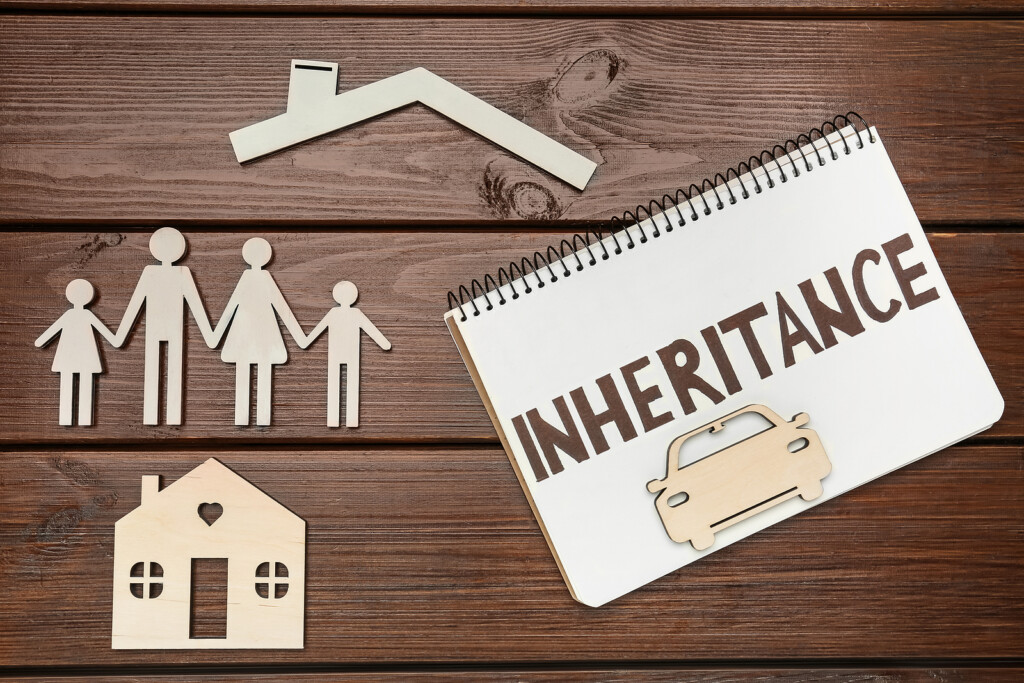
Many people are motivated to minimise IHT to benefit their surviving relatives. After all, you have worked hard to accumulate the wealth, and it doesn’t seem fair that it can be taken away from them at an already difficult time.
So why pay more tax than you must – let’s look at what you can do now!
Thresholds and Allowances & Reliefs
The standard rate of IHT is 40% above the £325,000 threshold. So, for example, if an unmarried person dies with an estate (assets, properties & money) worth £500,000 and the tax-free threshold is £325,000, the Inheritance Tax charged will be 40% of £175,000 (£500,000 minus £325,000) = £70,000.
Everyone gets the £325,000 threshold, and this is passed onto a surviving spouse. So, if you were married and survive your husband or wife, you will have an allowance of £650,000 (subject to this not being used on their death).
In addition, if you jointly own a residence which was your home, each spouse gets a main residence band of £175,000 which takes their total allowance to £500,000 and the surviving spouse’s allowance to £1m. The residence must however, be passed to a descendant of the deceased and if the total estate exceeds £2m, this relief may be lost.
Business Relief
You can get relief for ownership of a business or shares in a qualifying business. This relief ranges from 50%, on business property and machinery, to 100% on unquoted or unlisted shares.
There are conditions, but this relief can mitigate a large chunk of the estate’s value.
Agriculture Reliefs
There are specific reliefs for agriculture assets – subject to the conditions; an individual can qualify for 50% or 100% relief.
Easy ways to save IHT
The main way of mitigating IHT is to reduce the value of your estate below the threshold that applies to you.
Pensions
Pension pots are not normally part of your taxable estate for IHT, so it makes sense to make regular contributions to your pension. Conditions need to be met, and financial advice is recommended, but a pension is a great way to mitigate IHT.
Gifting Assets
If you give assets away and then live for 7 years after gifting them, then there is no Inheritance Tax to pay. These are called Potentially Exempt Transfers (PETS). However, this does not apply if you are still benefiting from the asset.
If you die within 7 years of gifting the assets, then your estate will pay tax on some, or all, of the value of the asset gifted.
Also, it should be noted; if you gift away assets that have risen in value since you acquired them, they may be subject to Capital Gains Tax. If something has dropped in value, then it’s an ideal time to give them away.
Capital Gains Tax is calculated on the difference between the market value on the date you gift the asset and its base cost. So, you may end up paying tax even though you are not receiving anything for the asset.
Cash given away is a PET but does not attract Capital Gains Tax.
Examples of Lifetime Gifts
You can give away £3,000 each tax year without it being considered for IHT. Similarly, you can give up to £5,000 to a child of yours, £2,500 to a grandchild and £1,000 for a great-grandchild as a wedding gift prior to their wedding.
In each tax year, you can also gift up to £250 to any number of people completely free of IHT, provided you have not used another exemption on the same person.
Gift Out of Income
Since you have paid tax on your income, you can give any excess away without paying IHT. These gifts must have formed part of the transferor’s normal expenditure, been made from income and left the transferor with enough income to maintain their normal standard of living.
What is more, Gifts Out of Income are not a PET either. You must meet the conditions for these gifts, and this takes careful planning, but if done correctly, they can be a valuable tool in your tax planning strategy.
Inheritance Tax Insurance
If you are likely to incur an inheritance tax bill, you can always take out insurance against the tax. Effectively this is a life insurance policy that pays out on death to cover the potential liability. It is important to specify that the policy is in trust otherwise, the pay-out will count towards the estate when you die.
Using a Trust to mitigate your Inheritance Tax
If you put things into a Trust then, provided certain conditions are met, they no longer belong to you. This means that when you die their value normally will not be counted when your Inheritance Tax bill is worked out.
A Trust is a legal arrangement where you give cash, property or investments to someone else so they can look after them for the benefit of a third person.
The trustee is the person who owns the assets in the trust, and the beneficiary is the person who will ultimately benefit from the trust.
There are several types of trust, each suitable for a different set of circumstances. It should however, be noted that there may be tax consequences for the trust.
A little planning goes a long way
When it comes to IHT, it’s important to have a plan – the best place to start is to review your existing assets and liabilities and sit down with your accountant and financial adviser. IHT is generally higher when there is not a plan to mitigate it.
Download a PDF version here.






